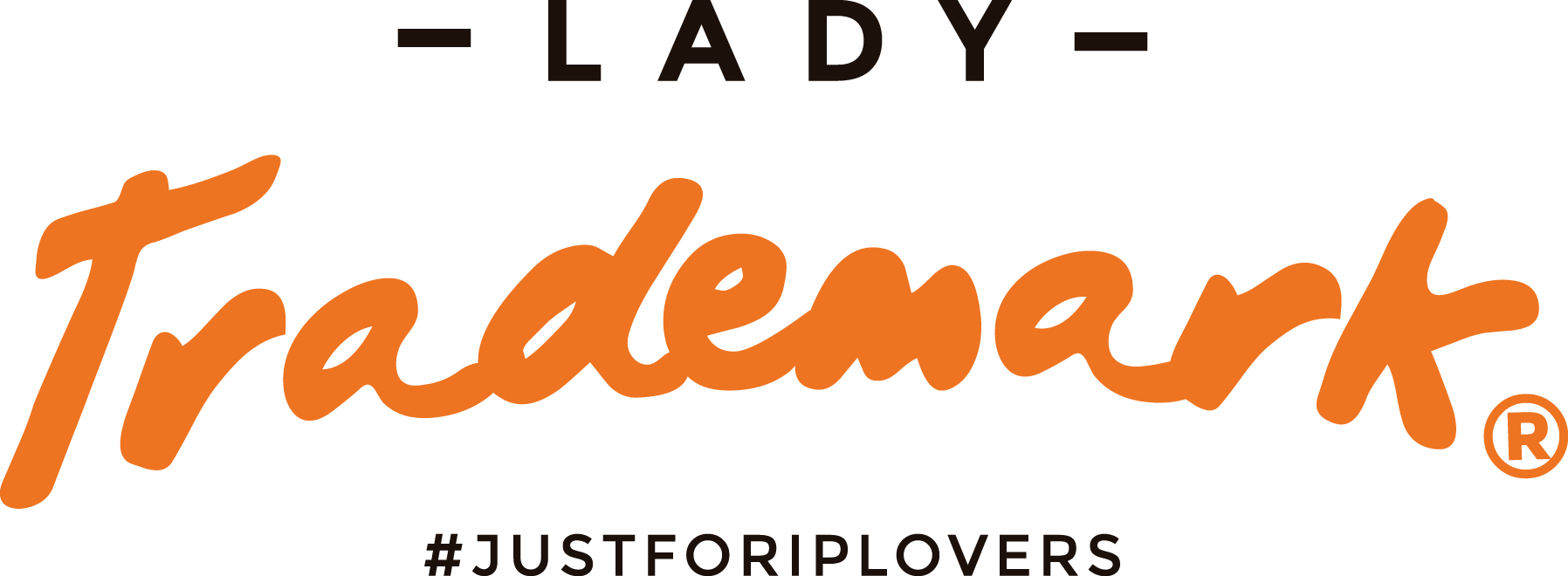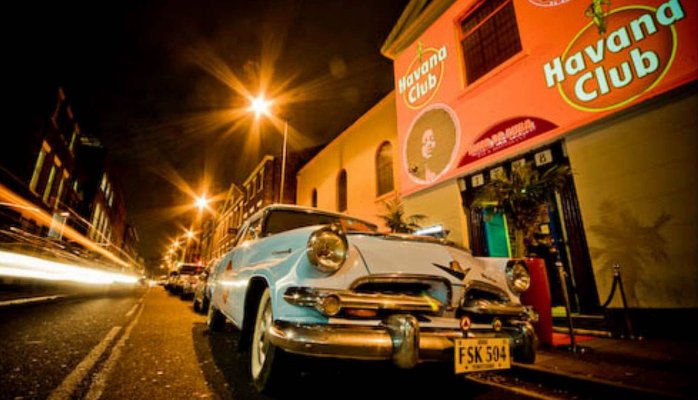The Rolling Stones in La Havana: an historic concert which is a symbol of the country’s opening illustrating the current transformation of the Cuban system.
In the same way, the visit of the American President Barack Obama in Cuba a few days earlier illustrated the rapprochement which is operating between the two countries. Since last year, Cuba is at the center of every attention because the opening up of trades suggests that the country is going to be subject to a significant economic development. In December 2014, Barack Obama announced that he wished to put an end to the embargo against Cuba.

France is also thinking about some business to develop with Cuba. François Hollande was the first EU Members States’ President to visit the island in May 2015. Last February, Raul Castro visited Paris to talk about economic issues and consequently several agreements were signed. At last, in March 2016, European Union and Cuba signed an agreement on normalization of their relations, which were frozen since 1996.
The opening of Cuba should have impacts on all sectors of the economy. In this respect, the importance of intangible assets in trade relations requires to be focused on the rules related to intellectual property in the Cuban legislation and the impact that the country’s opening is likely to have in the sector. This new context is likely to highlight important issues, notably in trademark law.
Intensification of intangible assets’ protection in Cuba
Intellectual Property must be integrated into Cuba’s development strategies since it is an important element of competitiveness and growth.
In spite of its particularity related to state-owned companies, the Intellectual Property system provided by Cuban law satisfies the fundamental principles established by the Paris Convention for the Protection of Industrial Property and the Bern Convention for the Protection of Literary and Artistic Works.
However, it is clear that Cuba’s opening will probably impact its Intellectual Property system. It seems that Cuba took this change into account. Indeed, at the beginning of 2016, the European Patent Office President, Benoît Battistelli, signed an agreement protocol with the Cuban Industrial Property Office (OCPI) in order to promote the cooperation between the said institutions. This agreement follows a WIPO general meeting during which, the General Director recognized the role played by Cuba in the Organization’s work. Therefore, Intellectual Property is going to play a key role in the economic development of Cuba and represents a point of discussion with the United States.
Since the Cuban economy is opening to the private sector, Cuban population faces obstacles which did not exist under the American embargo. Indeed, even though Cuba protected registered trademarks before the authorities, the Cuban state would tolerate the sale of pirated software, music and movies. In the private sphere, entrepreneurs will have to be more vigilant to the signs they want to use in their business activity.
In any case, the practice of Intellectual Property will have to be subject to clarification in Cuba because it represents important business assets for companies. Indeed, since 1966 about 1500 American companies filed about 6000 trademarks registrations in Cuba, like Coca-Cola, Pepsi, Intel, Pfizer or Burger King. Moreover, other companies have filed their trademarks registrations in the island since the USA and Cuba announced the restoration of their diplomatic relations, like Twitter, Uber and Segway. Thus, 192 American trademarks have been filed in Cuba during the first four months of 2015 against 78 throughout 2014.
Intellectual Property enables to unify economic and symbolic values, and represents an important asset for Cuba which holds a famous and valued popular cultural heritage. The signature of the distribution agreement between Sony Music and Egrem, Cuban music label, shows it because it will enable Cuban music to be exported after decades of embargos.
However, even though Intellectual Property rights are likely to protect Cuban cultural identity, trade opening reactivates legal controversies.
A specific example: The Havana Club case
The opening of the dialogue relaunched the saga opposing the American company Bacardi to the French-Cuban joint venture whose 50% is held by the Spirits Global leader, Pernod-Ricard. Since the 90’s, the two companies, Cubaexport and Bacardi, have been fighting for the Havana Club trademark property created at the end of the 19th century by José Arechabala. History tells us that Arechabala family had to leave the island because of the Castro revolution which led to the nationalization of all its goods.
Nevertheless, since 1976, the Cuban state-owned company registered the Havana Club trademark in the United States and obtained its renewal until the 90’s. Then, Cuban State set up a mixed company with Pernod Ricard in 1993 in order to market the Havana Club rum at global level. The Bacardi company which was concerned by the arrival of the French company in the market, negotiated a transfer of ownership in 1997 with the initial right-holder, the Arechabala family.
The legal battle started in 1998 when Bacardi obtained from the American Congress the “Bacardi Bill” which prevents the filing of Cuban nationalized trademarks in the United States, like Havana Club. The “Barcardi Bill” enabled the American company to use the Havana Club trademark to distribute its Rum in the United States while Pernod Ricard sells the same alcohol, under the same name, in the rest of the world.
In this respect, the Office of Foreign Assets Control (OFAC), US Treasury, refused in 2006 to grant to Cubaexport the renewal of the Havana Club trademark in the United States. However, in order to facilitate the convergence of the two countries, Cubaexport recently obtained a specific license from the OFAC. This license enabled the company to request the renewal of the Havana Club trademark in the United States. Thus, at the beginning of this year 2016, the USPTO accepted to renew the filing of the Havana Club trademark in the United States, which is now in force until January, 27, 2026. This will enable Cubaexport to sell goods under the Havana Club trademark in the USA when the American embargo will be lifted in Cuba, giving French-Cuban group access to the world’s leading Rum market.
Moreover, the trademark renewal will enable the Washington Federal District Court to make a ruling on the substance of the case between Pernod Ricard and Bacardi, both claiming the sign. At last, Cubaexport group hopes the American Congress will put an end to the “Bacardi Bill” after voting the lifting of American embargo.
The Havana Club case shows how the industrial property is naturally involved in Cuba’s changes. All those controversies were born during the embargo and Cuba’s opening brought them in the light. It shows the Cuban island attractiveness as a potential new investment place. In this respect, numerous rules have been voted to promote the country attractiveness.
Concerning literary and artistic property, Cuba also have assets. One of them is the signature of the distribution agreement between Sony Music and Egrem. Finally, the Cuban movie “Chala, Une Enfance cubaine” by Ernesto Darana was released on March, 23, 2016 after being presented in numerous festivals. It even won numerous awards. This full-length movie appears as a new opportunity to export the Cuban art throughout the world.
Anne-Marie Pecoraro and Marion Faupin,aturquoise.com/blog ©2016 aturquoise.com
Follow us: @Turquoise_Law
Los Rolling Stone en la Habana: un concierto histórico que se impuesta en un símbolo de la apertura del país. El desplazamiento de más de medio-millón de espectadores para el más grande concierto nunca organizado en la isla da testimonio de la transformación actual del sistema cubano y de su descaimiento de las experiencias occidentales.
 En el mismo espíritu, la visita del presidente americano Barack Obama en Cuba unos días antes vino a ilustrar el acercamiento que se está operando entre los dos países. Francia también se interesa a los asuntos que podría desarrollar con Cuba así François Hollande era el primer Presidente de los Estados miembros de la Unión Europea a visitar la isla en mayo 2015.
En el mismo espíritu, la visita del presidente americano Barack Obama en Cuba unos días antes vino a ilustrar el acercamiento que se está operando entre los dos países. Francia también se interesa a los asuntos que podría desarrollar con Cuba así François Hollande era el primer Presidente de los Estados miembros de la Unión Europea a visitar la isla en mayo 2015.
La apertura de Cuba debería tener repercusiones en todos los ámbitos de la economía. En ese contexto, la importancia de los bienes inmateriales en las relaciones mercantiles impuesta interesarse a las disposiciones relativas a la propiedad intelectual en la legislación cubana y al impacto que la apertura del país está susceptible tener en la matera. También, ese nuevo contexto es de natura a hacer resurgir problemáticas fuertes, particularmente en derecho de las marcas.
La intensificación de la protección de los bienes inmateriales en Cuba
La propiedad intelectual es un vector importante de desarrollo, así Cuba va a apoyarse en su utilización con vistas al impulso económico que se prepara a conocer el país.
En teoría, el sistema de propiedad intelectual previsto en la ley cubana corresponde con los principios fundamentales establecidos por los convenios internacionales. Sin embargo, en la práctica, la apertura de Cuba va probablemente tener impacto en su sistema de propiedad intelectual.
En la medida que la economía del país se está abriendo al sector privado, la población cubana encuentra obstáculos jurídicos que no había encontrado antes en razón del embargo americano. En efecto, el Estado cubano toleraría la venta de software, música y películas pirateados. A escala privada, los empresarios deberán estar más atentos a los signos que quieren usar en sus actividades.
En todos casos, el derecho de la propiedad intelectual deberá ser el objeto de una clarificación en Cuba tan representa activos mercantiles importantes para las empresas. Desde 1966, aproximadamente 1500 empresas americanas registraron casi 6000 marcas en Cuba, como Coca-Coca, Pepsi, Intel Pfizer o Burker King. Además, otras empresas registraron sus marcas en la isla desde que los dos países anunciaron el deshielo de sus relaciones, como Twitter, Uber y Segway. Así, 192 marcas americanas han sido registradas durante los cuatros primeros meses de 2015 contra 78 durante todo el año 2014.
La propiedad intelectual permite hacer converger valores económicos y simbólicos, y representa un activo importante para Cuba que conoce un patrimonio cultural popular reconocido y apreciado en todo el mundo. La firma del acuerdo de distribución entre Sony Music y Egrem lo atestigua porque va a permitir a la música cubana de exportarse más después de décadas de embargo.
No obstante, si los derechos de propiedad intelectual son de natura a proteger la identidad cultural cubana, la apertura de los intercambios es susceptible activar de nuevo controversias jurídicas.
El caso Havana Club
La apertura del dialogo con Cuba abrió de nuevo la saga oponiendo la empresa americana Bacardi a la empresa mixta franco-cubana Cubaexport, detenida por mitad por el leader mundial de las bebidas espirituosas, Pernod-Ricard.
Desde los años 1990, las dos empresas, Cubaexort y Bacardi, se disputen la propiedad de la marca Havana Club creada al fin del siglo 19 por José Arechabala. La historia quiere que la familia Arechabala se haya visto forzada a irse de la isla después de la revolución castrista de 1959 habiendo conducido a la nacionalización de todos sus bienes.
Sin embargo, a partir de 1976, la compañía estatal cubana Cubaexport presentó una solicitud de marca y obtuvo su renovación hasta los años 90. Entonces, el Estado cubano inició una empresa conjunta con Pernod Ricard en 1993 para comercializar el ron Havana Club a un nivel mundial. La empresa Bacardi, preocupándose de la llegada del francés en el mercado, negoció un acuerdo de transferencia de propiedad en 1997 con la familla Arechabala que tenía derecho inicial.
La batalla legal, ella, empezó en 1998 cuando Bacardi obtuvo del Congreso americano la votación de una ley, dicha “Bacardi Bill”, impidiendo el registro en los Estados Unidos de las marcas cubanas nacionalizadas, como Havana Club. Ese texto fue denunciado en 2002 por la Organización Mundial del Comercio después de una denuncia presentada por la Unión Europea. A pesar de todo, el “Bacardi Bill” permitió al grupo americano usar la marca Havana Club para distribuir su ron en los Estados Unidos cuando Pernod Ricard vendía el mismo alcohol, bajo el mismo nombre, en el resto del mundo.
En ese contexto, el OFAC, el Tesoro estadounidense, denegó en 2006 a Cubaexport, empresa a la cual es asociada Pernod Ricard, la renovación de la marca Havana Club en los Estados Unidos.
No obstante, con respecto a la aproximación entre los dos países, Cubaexport recientemente obtuvo una licencia específica ante la agencia federal encargada del control de activos extranjeros (OFAC). Esa licencia le debía permitir pedir la renovación de la marca Havana Club en los Estados Unidos. Así, al principio de 2016, el USPTO, el despacho americano de marcas y patentes, aceptó la renovación de la marca, ahora en vigor en los Estados Unidos hasta el 27 de enero de 2026. Esto va a permitir a Cubaexport vender en el territorio americano la marca de ron Havana Club cuando el embargo americano habrá sido levantado en Cuba, dando acceso para el grupo franco-cubano al primer mercado mundial de ron.
El caso Havana Club ilustra como la propiedad industrial está naturalmente imbricada en los cambios que la isla va a conocer. El hecho que tales controversias hayan nacido durante el embargo y aparezcan de nuevo al resplandor de la apertura da testimonio del carácter atractivo de Cuba que se presenta como un nuevo lugar de inversión.
En términos de propiedad literaria y artística, Cuba no está en resto, a la imagen de la firma del acuerdo de distribución entre Sony Music y Egrem. Por fin, azar del calendario, la película cubana « Chala, Une Enfance cubaine » de Ernesto Daranas estaba en salas en Francia después de haber sido presentada en numerosos festivales y haber ganado un nombre importante de premios. Este largometraje, que encuentra un gran éxito, se presenta como una nueva ocasión de exportar el arte cubano a través del mundo.
Anne-Marie PECORARO y Marion FAUPIN aturquoise.com/blog ©2016 aturquoise.com
Follow us: @Turquoise_Law



Leave a Reply